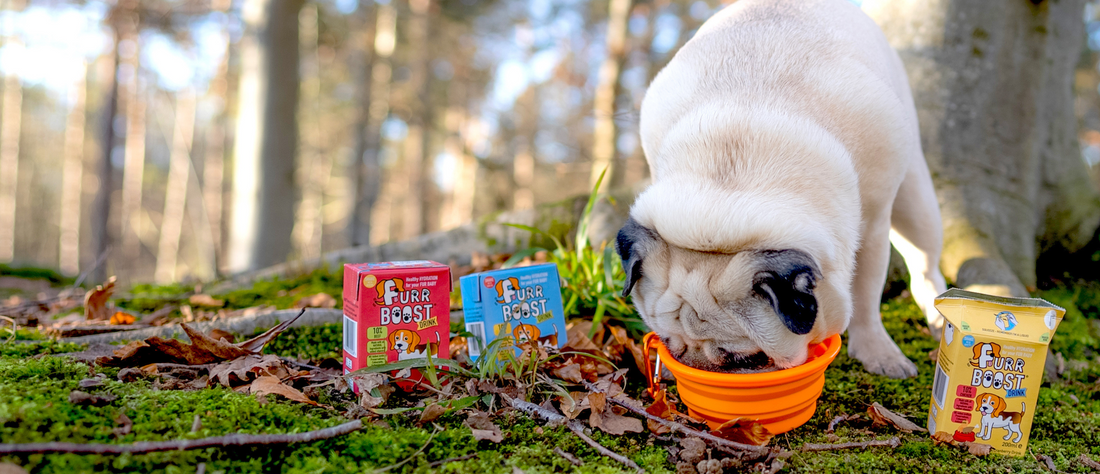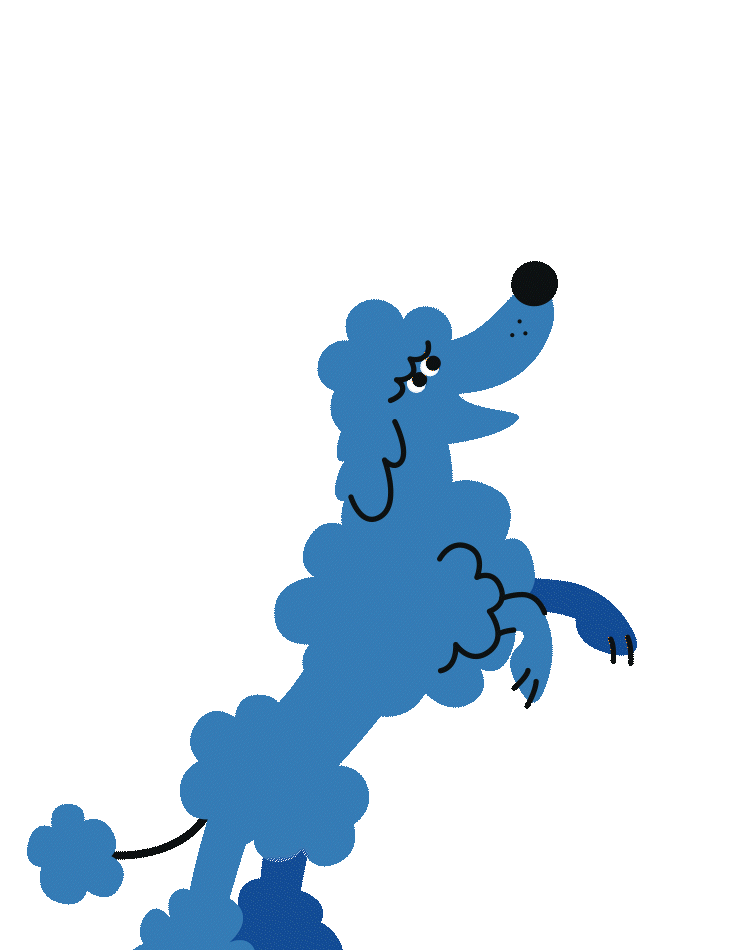
Two Tails, One Waggy Mission!
Share
We’ve teamed up with our furiends at Furr Boost for a tail-waggin’ collab month full of woofs, wags, and wellness! Think juicy discounts, pawsome giveaways, and clever ways to pair our tasty, healthy treats with their slurptastic drinks. Let’s get this paw-ty started!
And here are the top dogs in health and hydration giving us the low down on why keeping your furry friends quenched is essential for all elements of doggy wellbeing.
Why It’s Important to Keep Your Dog Hydrated
The key to keeping any dog fit and healthy is to feed them a balanced and nutritious diet.
A good diet should consist of the correct balance of fats, carbohydrates, and proteins, which are broken down by the body into micronutrients to nourish all living cells, helping them function and survive.
For our canine friends, it’s not only important to provide a complete, balanced meal
containing all three macronutrients, but also crucial to ensure that the ingredients are of
high quality—ideally human-grade and sourced responsibly.

How Do These Macros Work for Dogs?
There are debates over whether a dog’s diet should be predominantly high in protein, with
minimal carbohydrates. While high protein is essential for building the dog's body and
muscle through amino acids, carbohydrates still play a useful role. Over time, domestic dogs have evolved to become omnivores, rather than strict carnivores like their wild ancestors, and carbohydrates now offer added benefits to their digestive health.
Carbohydrates break down into sugars, serving as the body's first source of energy.
Dogs that are more active can greatly benefit from a balanced intake of carbohydrates. Complex carbohydrates (such as low-GI and green vegetables) are especially beneficial, as they also break down into non-soluble fibre, aiding intestinal motility, nutrient absorption, and healthy stool formation.
Fats are also critical. They support energy levels, muscle and cell function, and possess
important anti-inflammatory properties that benefit the skin and coat. It’s important to
strike the right balance between saturated and unsaturated fats to avoid inflammation in
joints and other health issues. Fats, being larger molecules than proteins or carbohydrates,
are easily digested by dogs and are essential to their overall well-being.

Water: The Most Valuable Nutritional Source
One vital nutritional element, often overlooked, is water. There is a common myth that dogs fed a raw diet do not require much water due to the diet's high moisture content. However, regardless of diet type, a dog’s body still requires water to support digestion and to replace fluids lost through:
Panting – the primary method dogs use to regulate body temperature.
Urination – water drives impurities through the kidneys and out of the body.
Defecation – water content in stool supports regular bowel movements; both
constipation (low water intake) and diarrhoea (loss of water) highlight the need for
adequate hydration.
Dogs also naturally need more water after exercise, during periods of anxiety, and in hot
environments to replace fluids lost through panting. Older dogs, whose organ function may decline, also typically require more hydration.
For dogs on a kibble-based diet (which can have a moisture content as low as 7%), access to fresh water is even more crucial. Considering that a dog’s body is roughly 80% water, it's vital to their health that they have access to clean, fresh water at all times.

What Does Water Do for Our Dogs?
Water is needed right from the start of the digestive process. It enables hydrolysis, the
chemical breakdown of macronutrients into micronutrients, facilitating the transportation
of these vital elements to every living cell.
This nutrient transport keeps the brain nourished, supporting cognitive function and
resulting in a more alert and bright dog. Studies in humans show that dehydration can lead to reduced blood flow to the brain, resulting in tiredness, reduced alertness, and even
feelings of anxiety and depression. It’s reasonable to infer similar effects in our pets.
Additionally, water helps to absorb and dissipate heat from hardworking internal organs,
helping to regulate body temperature.
While most owners are mindful of hydration during hot summer months, hydration is
important year-round. Heated homes, fireplaces, and other warm environments can
dehydrate dogs just as easily as hot weather. Fresh water availability should always be a
priority to ensure your dog’s entire system functions at its best.

Every Sip Counts
Every sip of water is a step towards a healthier, happier life for your dog. By keeping them hydrated, you’re not just meeting a basic need, you’re helping them thrive and enjoy every adventure by your side.
At Furr Boost, we believe that wellness starts from within. Our naturally delicious smoothies are crafted to nourish and hydrate your dog the way nature intended — with love, care, and the very best ingredients.
Explore the Furr Boost range today and give your dog the gift of lasting
vitality: www.furrboost.com

About the Author
Louise Toal is a Food Science Technologist and the founder of Furr Boost, voted Best
Product (Dog) at both the PetQuip and Pet Industry Federation Winner Awards 2022. Furr
Boost offers balanced and nutritious smoothie drinks designed to meet the hydration and
wellness needs of dogs, containing a natural blend of meat, fruits, and vegetables.
Learn more at www.furrboost.com



